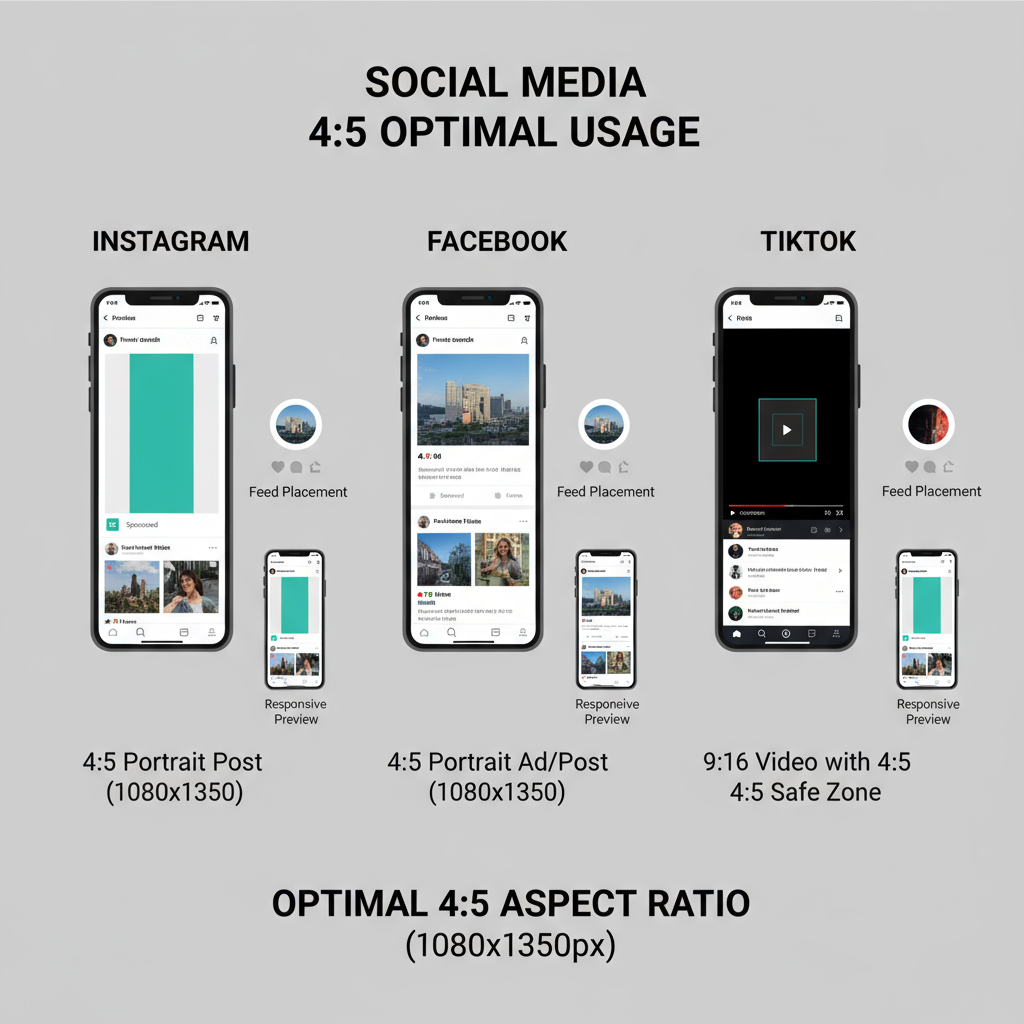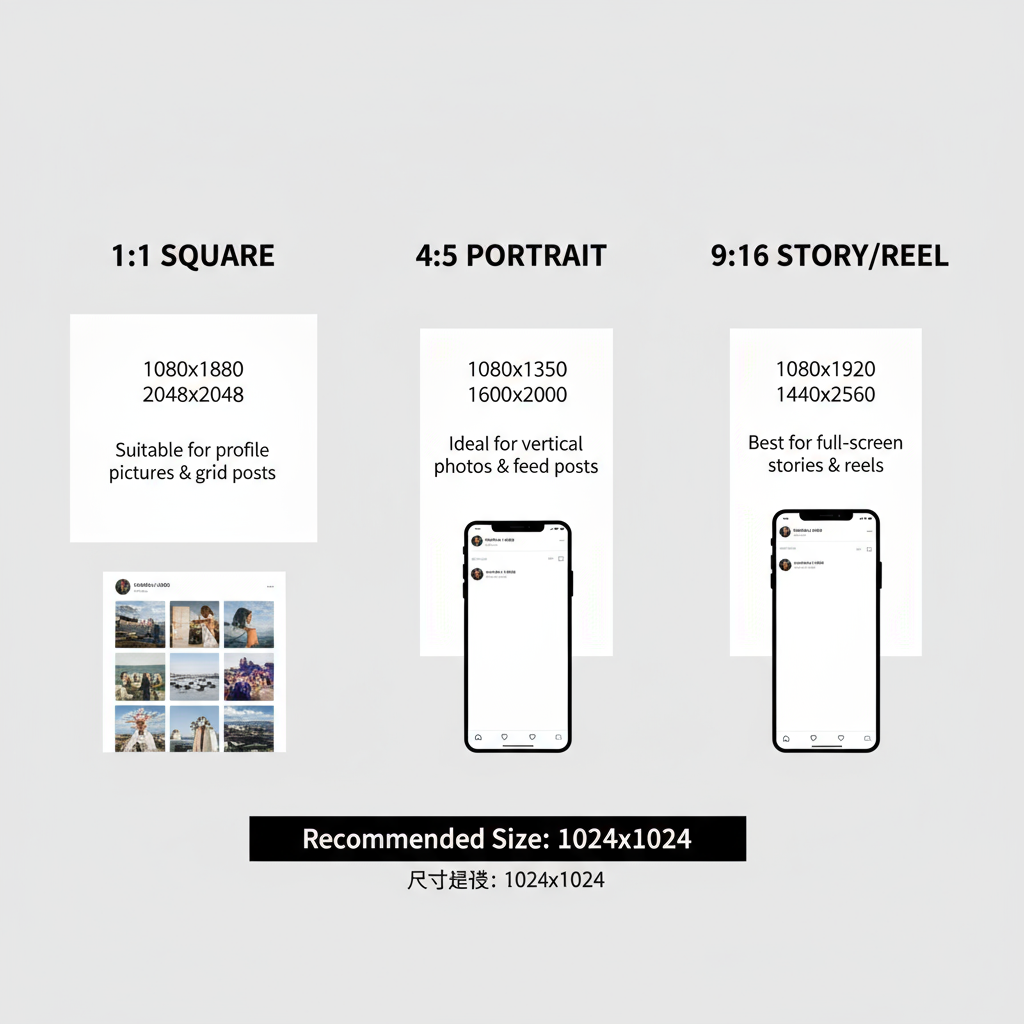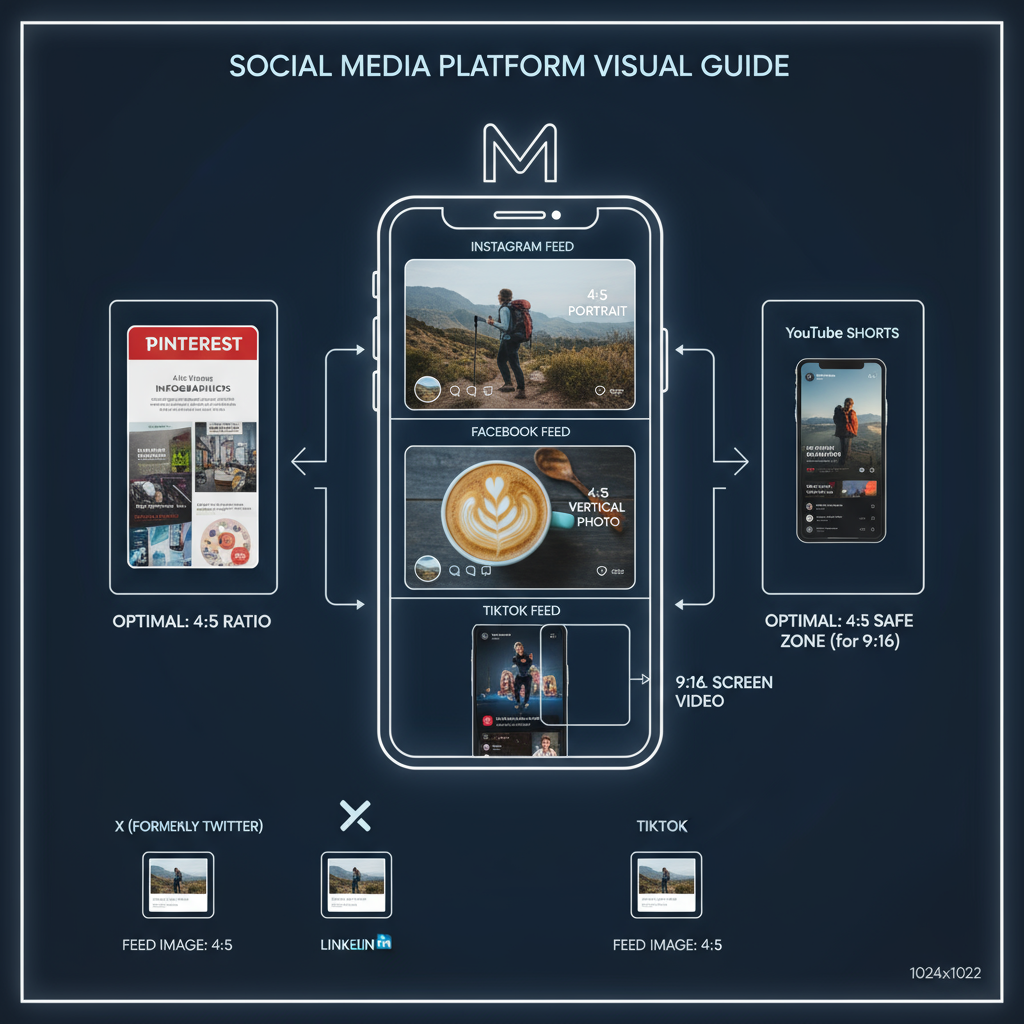4:5 Pixel Aspect Ratio Guide for Social Media Images
Learn how to master the 4:5 pixel aspect ratio with exact dimensions, design tips, and platform uses to boost engagement on social media feeds.

Mastering the 4:5 Pixel Aspect Ratio for Social Media Success
The 4:5 pixel aspect ratio is one of the most effective formats for maximizing visual impact in today’s mobile-first, feed-driven social media world. This vertical orientation delivers more on-screen real estate than a square image, without the overly elongated feel of a 9:16, making it perfect for both photos and videos.
In this guide, you’ll learn the exact dimensions, best practices, platform applications, and optimization techniques to make the most of the 4:5 aspect ratio in your content strategy.

---
Understanding the 4:5 Pixel Aspect Ratio
The 4:5 pixel aspect ratio describes the proportional relationship between an image’s width and height: for every 4 pixels in width, there are 5 pixels in height.
This makes it a portrait (vertical) orientation — taller than 1:1, but not as extreme as 9:16.
In mathematical terms:
height = (width ÷ 4) × 5Example calculation:
If the width is `1080px`, the height becomes `(1080 ÷ 4) × 5 = 1350px`.
The 4:5 ratio is ideal for:
- Filling more vertical screen space on mobile devices
- Standing out in crowded feeds
- Displaying products, portraits, and vertical layouts naturally
---
Common 4:5 Resolutions and Why They Matter
While the aspect ratio sets proportions, resolution defines the image’s pixel dimensions. Social media–friendly presets for 4:5 include:
| Width (px) | Height (px) | Use Case |
|---|---|---|
| 1080 | 1350 | Instagram Feed (standard) |
| 1200 | 1500 | Facebook Ads |
| 800 | 1000 | Lightweight web images |
| 2160 | 2700 | High-resolution / print-ready |
Why resolutions matter:
- Platform compatibility: Prevents auto-cropping and unexpected borders
- Sharpness: Maintains detail on Retina and 4K screens
- Workflow efficiency: Pre-sized designs reduce editing errors
---
Platforms That Use 4:5 Effectively
The 4:5 format is supported by many high-engagement platforms, including:
- Instagram feed posts — maximizes mobile screen fill without cropping
- Facebook feed ads — optimized height for mobile without intrusiveness
- Pinterest pins — balanced vertical presence for smooth scrolling
- LinkedIn posts — stands out within vertical newsfeeds
💡 Pro tip: Social media platform specifications can change. Always check the latest guidelines before scheduling content.
---
Why Choose 4:5 Over 1:1 or 9:16
1:1 vs 4:5: While square images provide balance, 4:5 increases vertical visibility, keeping posts on screen longer as users scroll.
4:5 vs 9:16: Full vertical (9:16) often requires taps to expand or is better suited for Stories/Reels, whereas 4:5 fits neatly into feed layouts.
Advantages of 4:5:
- Improved engagement and longer viewing time
- Better utilization of feed space without awkward cropping
- Easier repurposing for multiple channels
---
Designing for 4:5: Composition Tips and Safe Zones
Follow these design principles for flawless 4:5 visuals:
- Center your subject for symmetry and safety during cropping.
- Add padding at top and bottom to avoid cutting off text or key details.
- Use the rule of thirds — framing looks especially dynamic in portrait orientation.
- Respect safe zones by placing text/logos at least 10% away from edges.

These practices ensure your content looks great across devices and platforms — crucial for paid advertising.
---
Optimizing Image Quality for 4:5
Proper export settings are critical for stunning, crisp 4:5 images.
Optimization checklist:
- File format: JPEG (quality 80–90%) for photos; PNG for transparency; WebP for modern compression
- Color profile: sRGB for consistent web display
- Compression: Use lossless where possible; optimize via TinyPNG or ImageOptim
- Minimum resolution: 1080×1350 for Instagram and upscaling proportionally when needed
---
Using 4:5 for Video: Framing and Delivery
The 4:5 ratio works just as well for video content, making it highly engaging in feeds.
Video creation tips:
- Shoot in portrait or crop from high-resolution footage to preserve quality
- Add captions that are large and centrally positioned for mobile viewing
- Test crops across device previews before publishing
Example Instagram export:
1080×1350 resolution · H.264 codec · Bitrate ~5–10 Mbps
---
Recommended Tools and Templates
Speed up production and maintain brand consistency with:
- Canva — pre-built 1080×1350 social post templates
- Adobe Photoshop — crop tool ratio presets
- Figma — collaborative resizing and layout design
- Pixlr — lightweight web-based photo editing
Templates reduce repetitive setup and boost efficiency.
---
Case Study: Boost in Engagement After Switching to 4:5
A lifestyle brand tested posts in 1:1 vs 4:5 formats over two weeks:
| Aspect Ratio | Avg. Reach | Avg. Engagement Rate | CTR |
|---|---|---|---|
| 1:1 | 18,000 | 2.1% | 0.8% |
| 4:5 | 25,500 | 3.3% | 1.2% |
Result: The 4:5 posts saw higher reach and engagement thanks to more prominent feed placement.
---
Common 4:5 Mistakes to Avoid
- Uploading low-resolution content that appears pixelated
- Cropping important subjects too close to the edges
- Ignoring safe zones, causing clipped text/logos
- Over-compressing, resulting in loss of clarity
- Skipping previews on different devices
---
Quick Best Practices Checklist
Before posting any 4:5 asset, ensure:
- Exact 4:5 dimensions (e.g., 1080×1350)
- Subject centered or framed with intention
- Text/logos within safe zones
- Correct export format and color profile
- Visuals tested on mobile + desktop
- Optimized file size without visible quality loss
- Brand styling applied consistently
---
Final Thoughts
By mastering the 4:5 pixel aspect ratio, you can take advantage of more vertical space in social feeds, capture user attention for longer, and present sharp, professional visuals that work seamlessly across platforms.
Whether you’re creating ads, photoshoots, or video content, the 4:5 ratio gives you a versatile, high-performing format to optimize your brand presence.
Ready to level up your visuals? Start applying 4:5 formatting to your next batch of social media creatives and watch engagement rise.



